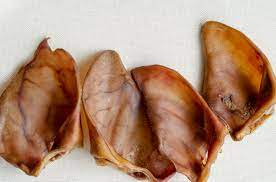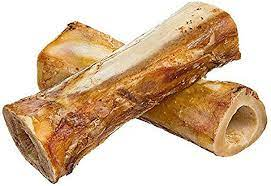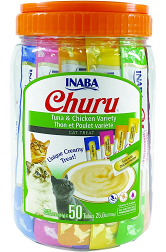Pet treats are widely used, and for good reason. Treats can be useful training tools, and pets typically like treats (and owners like to make their pets happy). But even something as simple as feeding pets treats carries some risks. Finding the right treat is essential.
Many pet owners don’t realize that some common treats have bacteria and other things that can make your pet sick!

Pathogens
- Certain treats have been implicated in a few different outbreaks in people. Salmonella-contaminated pig ear treats are a main offender, but any animal-based treat that is not processed to kill pathogens (e.g. cooking, pasteurization, irradiation) is a concern. Bacteria such as Salmonella, Clostridium, E. coli and more have been found on treats with dried meat or pig ears and things like bully sticks (which are dehydrated bull penises).
If a dog or cat eats an infected treat and becomes contaminated with pathogenic bacteria, tis can be shed in their feces and infect their people. - Just like pig ears have contaminants, you can go into some pet stores and get dehydrated “insert almost any body part here” – lung, trachea, liver, ear, etc. Presumably these items carry a similar degree of risk for Salmonella if they are otherwise unprocessed.

Toxins
The main concern here is chicken, duck and sweet potato jerky treats from China, which have been implicated in a large number of pet illnesses and deaths, including at least 1000 dead dogs. No main factor has been found that cause the kidney issues associated with these treats, so there’s no way to test the products to ensure the same problem won’t happen again.
Injuries

- Hard treats can result in tooth damage or fractures, which can be both painful and expensive to address. This includes hard soup bones, antlers or any bone or bone-like product
- Treats with sharp edges (e.g. bone fragments) can cause damage to the intestinal tract as well.
Obstructions
Dogs eat stuff they’re not supposed to all the time (at least mine does). Most often, it’s not a problem, but sometimes it is. If a pet swallows a large piece of a poorly digestible treat it can cause an issue in the esophagus if it’s too large and gets stuck.
Realistically, this is of limited concern for most edible treats, but is a bigger issue with toys and things like rawhides. If using rawhide treats, make sure to get an appropriate sized one for your dog. While enjoying treats such as rawhide, pets should be supervised
Obesity
A tasty and cherished cat treat is pictured below – It comes in variety flavor packs and single flavor packs. The cats we polled seemed quite keen on the Tuna flavor.

Weight gain and obesity aren’t usually considered when thinking about problems with treats, but a lot of treats are high in calories, and obesity isn’t just a problem with pet owners. As with human snacking, moderation is the key.
Before giving it to your pet, think about the treat, how to use it and what problems might occur. Most treats, particularly those that are not raw animal product based (e.g. pig ears), not prone to fragmenting (e.g. bones, especially cooked bones) and not excessively hard (e.g. bones) are fine in moderation.
If you’re unsure about the safety of a treat or chew toy, please reach out to your family veterinarian for suggestions.


